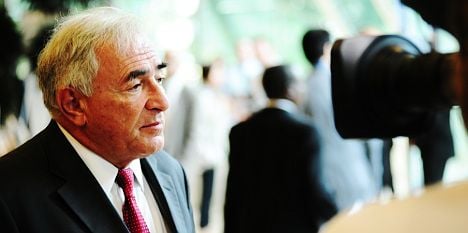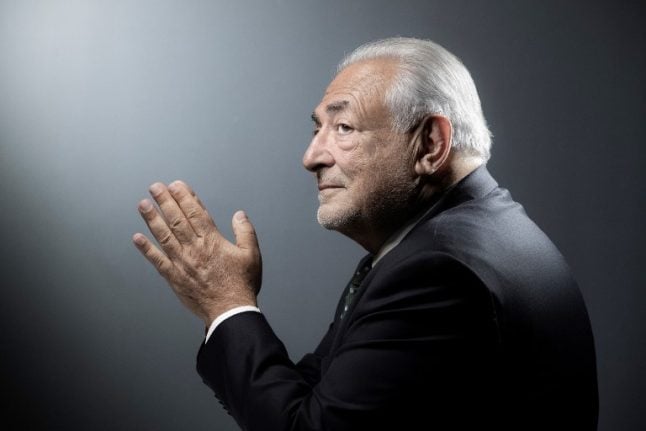He has been summoned for questioning on Tuesday in connection with a police probe into the organisation of sex parties in restaurants and swingers’ clubs in Paris, Washington, Madrid, Vienna and Ghent, Belgium.
Strauss-Kahn could face charges if magistrates deem he was aware the women who took part were prostitutes and the funds to pay them were fraudulently obtained, as is being alleged against other suspects, the source said.
While theoretically he could be held for up to 96 hours the interrogation is not expected to last more than 48 and he can be accompanied by a lawyer.
A police source said it was not ruled out that Strauss-Kahn would be charged then taken before a judge to decide whether he should be remanded in custody.
Strauss-Kahn, 62, resigned as director of the International Monetary Fund in May after he was accused of raping a chambermaid in a New York hotel. He returned to France in August after the US case collapsed, only to face new allegations.
First, a 32-year-old writer accused him of attempting to rape her in 2003 but, while prosecutors said there was prima facie evidence of sexual assault, the case was too old to pursue.
Then he was implicated in an entirely separate investigation into the alleged prostitution ring said to have operated out of luxury hotels in the northern French city of Lille.
Magistrates have already charged several leading local figures with organising the ring and there are suspicions that a construction company executive used his firm’s money to entertain guests at sex parties.
Strauss-Kahn is also expected to be asked if he gave anything in return for the parties organised and funded by businessmen Fabrice Paszkowski and David Roquet, who have already been charged.
Lawyers for Paskowski, head of a medical equipment firm, and Roquet, former director of a subsidiary of public works group Eiffage, have denied any quid pro quo.
Others charged in the case include three hotel bosses, a lawyer and a local police chief.
Strauss-Kahn had demanded to be questioned by judges leading the inquiry, hoping to halt what his lawyers brand a “media lynching.”
A book published in December quoted him as admitting to having an uninhibited sex life, including attending swingers’ parties, but he denied knowing that any of the participants were prostitutes.
The last party he attended took place from May 11th to 13th in Washington, just before the incident with chambermaid Nafissatou Diallo in New York.
Once seen as the favourite to oust Nicolas Sarkozy and win April’s French presidential election, Strauss-Kahn is now an embarrassment to his Socialist Party, shunned by the campaign and former close allies.
He still faces a civil suit from the New York hotel maid, Nafissatou Diallo.
Strauss-Kahn’s journalist wife Anne Sinclair, 63, who stood by the disgraced former IMF chief during the New York scandal, was named editor of the French edition of the Huffington Post Internet newspaper last month.



 Please whitelist us to continue reading.
Please whitelist us to continue reading.
Member comments